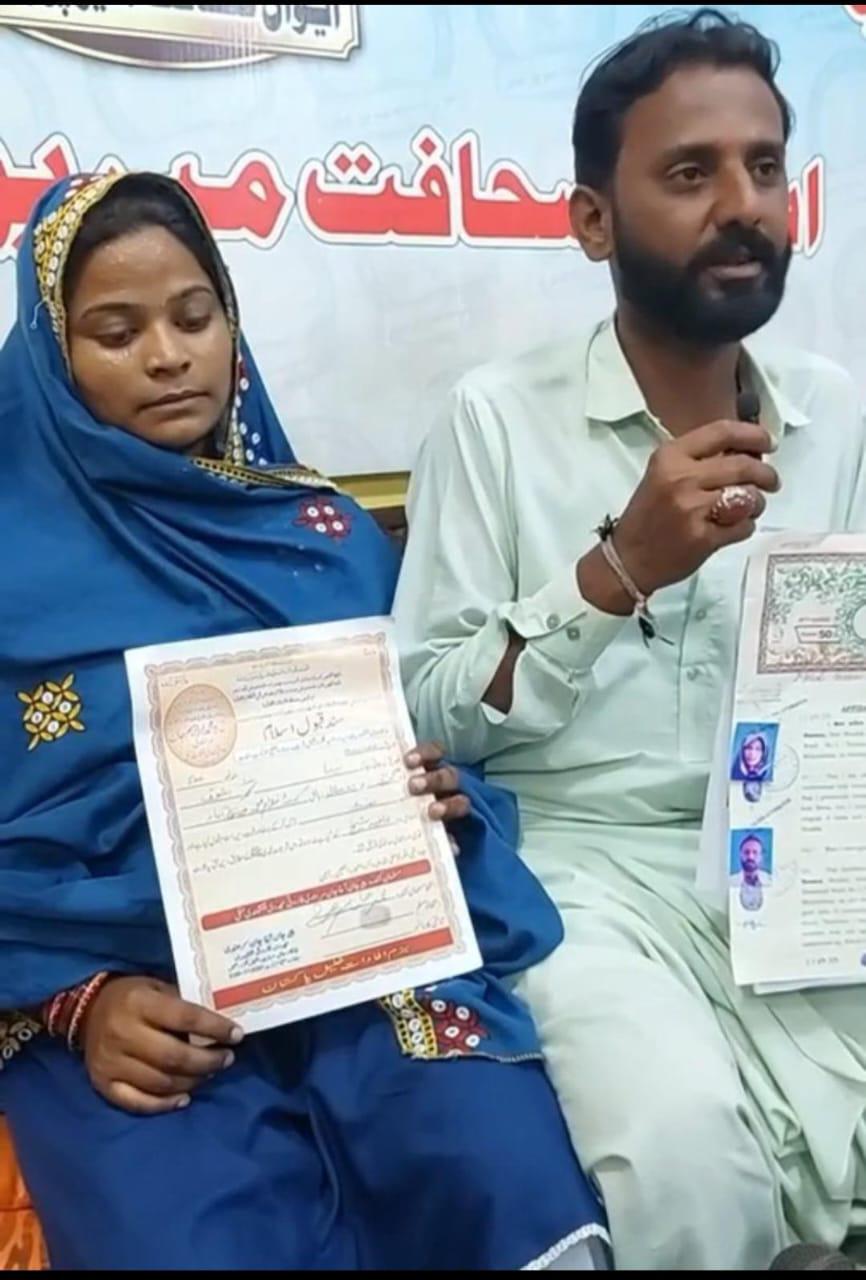📍 Mirpurkhas, Pakistan | July 2025
A 20-year-old girl from the Hindu minority community, Anita, daughter of Raimon Bhel, a resident of village Okraro in Umerkot district, Thar, has reportedly converted to Islam and married Muhammad Siddique, son of Muhammad Yunus Panhwar, in a court ceremony in Mirpurkhas.
According to available reports, Anita accepted Islam at the hands of Pir Muhammad Omar Jan Sirhindi in Samaro, after which she was given a new Islamic name, Salma. A formal certificate of conversion was issued to her by the religious authority.
Following the conversion and marriage, the couple filed a petition for protection in the Mirpurkhas court, citing potential threats from the girl’s family or community.
🔍 Ongoing Pattern: Minority Girls and Religious Conversions
This case is part of a broader and ongoing trend in Pakistan, particularly in Sindh province, where girls from minority communities—especially Hindus—are frequently reported to have converted to Islam and married Muslim men, often under contentious circumstances.
Human rights organizations, both local and international, have raised repeated concerns about:
-
The validity of consent in such conversions and marriages
-
Social and familial pressure on young girls from marginalized communities
-
The lack of legal safeguards and protective mechanisms for minority women and girls
-
The absence of independent inquiry into such cases to determine if coercion or manipulation is involved
⚖️ Legal and Social Implications
While Pakistani law does not explicitly prohibit conversion or interfaith marriage for adults, rights activists argue that the line between voluntary choice and coercion is often blurred, especially when it involves young women from disadvantaged and underrepresented communities.
There are frequent appeals for:
-
Age verification of the girls involved
-
Neutral legal inquiry into circumstances surrounding the conversion
-
A codified law on forced conversions, as currently no comprehensive federal legislation exists
📢 Calls for Reform and Protection
This incident, like many before it, has sparked renewed calls from civil society for stronger protection of minority rights, and for judicial oversight to ensure that conversions and marriages are truly consensual, especially in cases involving young women from vulnerable communities.
“Innocent girls from the minority community in Pakistan continue to suffer in silence,” said one Sindhi human rights advocate. “It’s not just about religion—it’s about power, protection, and justice.”
📝 Conclusion
While Anita’s case is now under the court’s jurisdiction, it serves as another reminder of the urgent need for policy reform, community support mechanisms, and a transparent legal framework to uphold the rights and dignity of all citizens, regardless of faith or background.
For more updates and detailed coverage of this case and other issues affecting the Hindu and Sindhi communities in Sindh, Pakistan, stay tuned to Sindh Renaissance.






